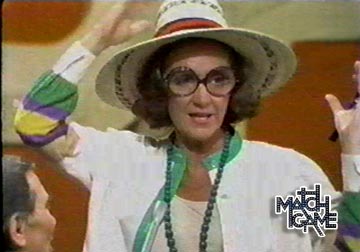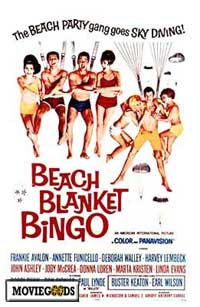Alabama is the home of the best in college football and NASCAR’s Talladega Superspeedway, but nestled in the middle of the state is the Barber Motorsports Park and the Barber Vintage Motorsports Museum. The 144,000-square foot, four-story museum, which is just a few miles outside of Birmingham, includes the world’s largest collection of vintage and modern day motorcycles and the largest collection of Lotus race cars.
The museum and collection is the brainchild of George Barber, a resident of Birmingham and the former owner of Barber Dairy one of the largest dairies in Alabama. Barber who raced sports cars in the early 1960s, started out collecting cars, but soon turned his attention to motorcycles in 1989. In the intervening years, he has gathered examples of some of the most significant bikes in existence. Barber began to purchase entire collections, housing them in a nondescript old building that had once been used for the maintenance of milk delivery trucks. As the number of motorcycles grew, the exhibit was opened to the general public. Eventually, almost ten thousand visitors a week were coming to see “that dairy farmer’s motorcycle collection.”
Barber built the current museum at The Barber Motorsports Park which opened September 19, 2003 with a collection that now has over 900 vintage and modern motorcycles.
A few years after it opened Barber met someone who is considered a legend in the field of motorsports, Evel Knievel. Knievel is the flamboyant motorcycle stuntman whose thrilling triumphs and spectacular failures enshrined him as America’s consummate daredevil.
Evel Knievel survived at least 38 broken bones, multiple concussions and countless abrasions acquired in daring jumps that ended in unplanned crashes, but he did not escape the Final Taxi at 69.
He was born Robert Craig Knievel in Butte, Montana, on Oct. 17, 1938. He was always getting into trouble and once after one particular police chase in 1956 in which he crashed his motorcycle, Knievel was taken to jail on a charge of reckless driving. When the night jailer came around to check the roll, he noted Robert Knievel in one cell and William Knofel in the other. Knofel was well known as “Awful Knofel” (”Awful” rhyming with “Knofel”) so Knievel began to be referred to as Evel Knievel. He chose this misspelling both because of his last name and because he didn’t want to be considered “evil”.
Knievel opened a Honda motorcycle dealership in Moses Lake, Wash., in 1965, hyping sales by offering a $100 discount to anyone who could beat him at arm wrestling. That same year, he started Evel Knievel’s Motorcycle Daredevils. They toured the Western states as a latter-day mechanized rodeo. However, one by one the riders dropped out, unwilling to keep up with someone whose idea of crowd-pleasing was being strapped to a parachute and then towed behind a drag-racer at 200 miles per hour.
Knievel made his name in America with a single jump in Las Vegas in 1968. Accelerating up a ramp, he soared his motorcycle upwards 141 feet over the ornamental fountains outside the Caesar’s Palace hotel. On landing, he pulverized his spine and pelvis and had to walk with crutches for the next year. His gained popularity led Knievel to tell people he would one day jump the Grand Canyon.
In February 1971, still not fully recovered, he broke his own distance record by jumping 150 feet to clear 19 cars placed side-to-side. On the flight back to Butte, he was told the US government would not allow a Grand Canyon jump. Knievel looked out the window and saw Snake River Canyon and decided to jump it instead. Knievel then hired former NASA engineer Robert Truax to design and build the X-2 Skycycle. During two test jumps, the rocket failed to make it all the way across the canyon. Knievel said that there would be no more tests and that he would go ahead with the scheduled jump on September 8, 1974.
The event was only available through pay-per-view. During the jump the parachute accidentally deployed when the three 1/4 inch bolts holding the cover for the chute sheared off with the force of the skycycle blast. The wind began to cause it to drift back as the skycycle turned on its side and started to descend into the canyon. Knievel survived the failed jump with only minor injuries.
Knievel decided to retire after a jump in the winter of 1976 in which he was again seriously injured. He suffered a concussion and broke both arms in an attempt to jump a tank full of live sharks in the Chicago Amphitheater. By 1981, Knievel’s son Robbie had taken over the daredevil act.
Knievel made somewhat of a marketing comeback in the 1990s, representing Maxim Casino, Little Caesar’s and Harley-Davidson among other companies. In 1999, Knievel was inducted into the Motorcycle Hall of Fame.
While on tour with the Evel Knievel rolling museum he came to Alabama and visited George Barber’s Vintage Motorsports Museum. Knievel and Barber hit it off immediately.
I talked with Lee Woehle, librarian of Barber’s Vintage Motorsports Museum, who is a self professed Evel Knievel fan. She remembers that day when he toured the museum. She said “It was like meeting an icon. I was surprised by the how fragile he looked at the time. He looked all of his age when he came to meet with us. You could see all the crashes and breaks had taken a toll on him.”
Woehle said she believes that Knievel helped to get motorsports a name and helped get it noticed on ABC’s Wide World of Sports and other programs.
Others visitors at the museum when I visited agreed with her. Kent Landerdale from Opelika said he not only helped the sport, but Harley Davidson. “I don’t think that company would have survived if Evel Knievel not used them. He had that big number 1 on the side. Most people didn’t know the abuse they could take or the extra springs that they had.”
Ty Bragg from Jemison brought his boys out for the day to Barber’s. When I asked the youngsters if they knew who Evel Knievel was they could not tell me, but Ty knew. “I remember being their age and watching the Snake River jump. My friends and I would take our bikes and do jumps to try and be like him. He was a hero and we wanted to be like him. I had toys and action figures and I wish I still had them today.”
Everyone agreed on one thing, Knievel showed the true American spirit. Lee Woehle said “The crashes we saw were pretty bad, but what was cool is that he came back every time. He was a survivor. We all received an inspiration from Evel Knievel.”
 Episode 27 is a look back on the first 26 episodes of the Brain Science Podcast.
Episode 27 is a look back on the first 26 episodes of the Brain Science Podcast.![]() Subscribe in a reader or podcatcher
Subscribe in a reader or podcatcher



 How the Body Shapes the Way We Think,
How the Body Shapes the Way We Think,



 Archie Comics president and co-publisher Richard Goldwater, 71, who, with his father John, created “Josie and the Pussycats,” has taken his Final Taxi.
Archie Comics president and co-publisher Richard Goldwater, 71, who, with his father John, created “Josie and the Pussycats,” has taken his Final Taxi.


















